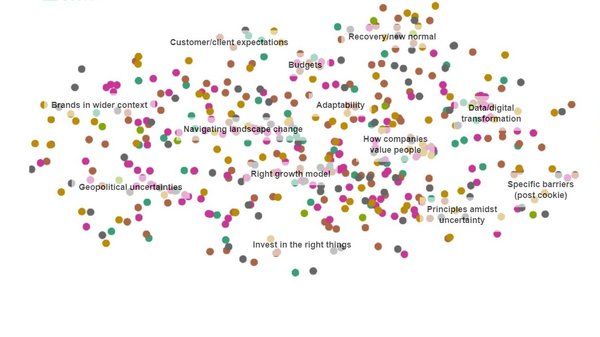Strategist’s Digest: The older you get, the fewer brands you retrieve /
Do older people process ads differently? Or are they just not being reached?
James Swift
/
Differences in advertising’s effectiveness across age groups /
By Philip Mecredy, Lara Stocchi and Pamela Feetham. First published in the International Journal of Advertising.
Give it to me in one sentence.
Older people can retrieve fewer brands from their memory — but it might have nothing to do with cognitive abilities.
Give me a little more detail.
The researchers surveyed respondents in the US and New Zealand about brands in three product categories: yoghurt, video-on-demand subscription services, fitness trackers (US only) and mobile phones (New Zealand only).
First, the researchers asked the respondents questions to ascertain their knowledge of each category and their buying habits.
Next, the researchers asked respondents questions about specific brands within each category, including the attributes they associated with each brand. Finally, they asked them to identify brands unprompted, and also which ones they would consider buying, to learn more about their purchase funnel.
When it came to analysing the results, the researchers divided the respondents into four age groups (18–39, 40–59, 60–74, and 75+).
The headline finding was that, across all product categories, one specific aspect of mental availability — associative penetration — declined with age. This meant that as cohorts grew older, the number of people within that group who could name at least one association between a brand and a list of attributes fell.
But among those participants who could name at least one association for a brand, age had no effect on the number of associations they were able to rattle off for that particular product.
In fact, there was no indication of a decline in any other aspect of mental availability (ie, mental market share and network size), which suggests that diminishing associative penetration among older people is the result of brands more often targeting younger consumers.
The study did discover some differences in how people move through the purchase funnel as they age, though. Generally, older respondents retrieved fewer brands from their memory than younger consumers, and they also tend to winnow their options more dramatically, both when moving from awareness to consideration, and from consideration to purchase.
Explaining this pattern of behaviour, the researchers highlighted another finding from the study, that younger people consistently rated themselves as more knowledgeable about product categories than older people, and said that this perceived lack of knowledge could affect how many brands the latter tend to retrieve.
Why is this interesting?
The existing studies on age and advertising have mostly focused on the different cohorts’ needs and habits. This one focused on cognitive evaluative measures, which show how advertising affects people’s memory associations.
The researchers add: ‘When triangulated against other comparisons of the profile of age groups based on other parameters (eg, based on personal characteristics, media use, habits, etc), this [study] has the potential to become a powerful analytical tool to guide effective age inclusive advertising practices.
Any weaknesses?
We can’t find any obvious weaknesses in the study but, more so than in other digests, we’d encourage you to read the full paper, which is full of useful titbits and nuances that we’ve excluded for the sake of brevity.
Where can I find the whole report?
Here, and it’s free to read.
Want more research? /
Contagious IQ is packed with summaries of the most interesting and relevant studies on how advertising works and people behave, as well best-in-class campaigns from the around the world, in-depth strategy interviews with agencies and marketers, and much more. Click here to book a free demo.
Want more of the same? /
We don’t just write about best-in-class campaigns, interviews and trends. Our Members also receive access to briefings, online training, webinars, live events and much more.






